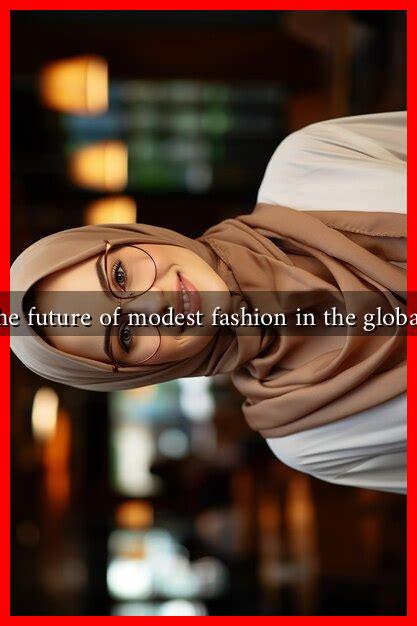-
Table of Contents
The Future of Modest Fashion in the Global Market
Modest fashion, characterized by clothing that provides more coverage and aligns with various cultural and religious values, has seen a significant rise in popularity over the past decade. As the global market evolves, modest fashion is not just a niche segment but is becoming a mainstream trend. This article explores the future of modest fashion, examining its growth, challenges, and potential opportunities in the global market.
The Rise of Modest Fashion
Modest fashion has gained traction due to several factors, including the increasing visibility of diverse cultures, the rise of social media, and a growing demand for inclusivity in the fashion industry. According to a report by Statista, the global modest fashion market is projected to reach $361 billion by 2025, reflecting a compound annual growth rate (CAGR) of 5.7%.
Key Drivers of Growth
Several factors contribute to the growth of modest fashion:
- Increased Representation: The fashion industry is gradually embracing diversity, with more brands featuring models of various ethnicities and backgrounds. This shift has encouraged consumers to seek out brands that reflect their values.
- Social Media Influence: Platforms like Instagram and TikTok have allowed modest fashion influencers to showcase their styles, creating a community that celebrates modesty while being fashionable.
- Consumer Demand for Ethical Fashion: Many consumers are becoming more conscious of their purchasing decisions, seeking brands that align with their ethical beliefs, including sustainability and cultural respect.
Challenges Facing Modest Fashion
Despite its growth, the modest fashion industry faces several challenges:
- Market Saturation: As more brands enter the modest fashion space, standing out becomes increasingly difficult. Brands must find unique selling propositions to attract consumers.
- Quality vs. Affordability: Many consumers desire high-quality, stylish modest clothing at affordable prices. Balancing these two aspects can be challenging for brands.
- Misunderstanding of Modesty: There is often a lack of understanding about what modest fashion entails, leading to stereotypes and misrepresentation in marketing campaigns.
Opportunities for Growth
Despite the challenges, there are numerous opportunities for brands in the modest fashion market:
- Collaboration with Influencers: Partnering with modest fashion influencers can help brands reach a wider audience and build credibility.
- Expansion into Emerging Markets: Countries with large Muslim populations, such as Indonesia and Turkey, present significant growth opportunities for modest fashion brands.
- Technological Innovations: Utilizing technology for personalized shopping experiences, such as virtual fitting rooms, can enhance customer satisfaction and engagement.
Case Studies: Successful Modest Fashion Brands
Several brands have successfully navigated the modest fashion landscape:
- Modanisa: A Turkish online retailer, Modanisa has become a leader in the modest fashion market, offering a wide range of styles and collaborating with various designers.
- Aab: Based in the UK, Aab focuses on contemporary modest wear, combining traditional elements with modern designs, appealing to a global audience.
- H&M’s Conscious Collection: The global retailer has introduced modest options in its Conscious Collection, showcasing that mainstream brands can also cater to modest fashion consumers.
Conclusion
The future of modest fashion in the global market is promising, driven by increasing demand for diversity, ethical practices, and innovative designs. While challenges exist, the opportunities for growth are substantial. Brands that can effectively navigate this landscape by understanding their consumers and leveraging technology will likely thrive. As modest fashion continues to evolve, it will play a crucial role in shaping the future of the fashion industry, making it more inclusive and representative of diverse cultures and values.

